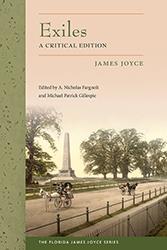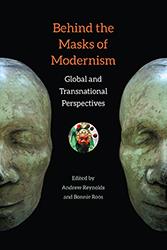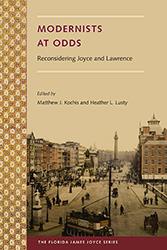This book fills the need for a systematic study of setting as significant to the playwright’s work as a whole.
Browse by Subject: Modernist Literature
Please note that while you may order forthcoming books at any time, they will not be available for shipment until shortly before publication date
Confronting a host of assumptions, misprisions, and prejudices, A. Nicholas Fargnoli and Michael Patrick Gillespie contend that Joyce's play, Exiles, deserves the same serious study as his fiction and stands on the cutting edge of modern drama.
The essays in this diverse collection explore numerous regional, national, and transnational expressions of modernity through art, history, architecture, drama, literature, and cultural studies around the globe. Masks--both literal and metaphorical--play a role in each of these artistic ventures, from Brazilian music to Chinese film and Russian poetry to Nigerian masquerade performance.
This is the first Finnegans Wake guide to focus exclusively on the multiple meanings and voices in Joyce's notoriously intricate diction.
In this book—one of the first ecocritical explorations of both Irish literature and modernism—Alison Lacivita defies the popular view of James Joyce as a thoroughly urban writer by bringing to light his consistent engagement with nature.
This volume elucidates the ways Joyce wrote about his homeland with conflicting bitterness and affection--a common ambivalence in expatriate authors, whose time in exile tends to shape their creative approach to the world.
A long overdue extended comparison of two of the most compelling writers of the twentieth century.
Reveals the geographic terms through which American modernist poetry interrogated prevailing ideas of orientalism, primitivism, and American exceptionalism.
Looking at the writing of three Irish expatriates who lived in Trieste, London, and Paris, Nels Pearson challenges conventional critical trends that view their work as either affirming Irish anti-colonial sentiment or embracing international identity.
This volume presents two rare works by the American modernist H.D.: Within the Walls, a collection of fourteen short stories, and What Do I Love?, a set of three long poems.











